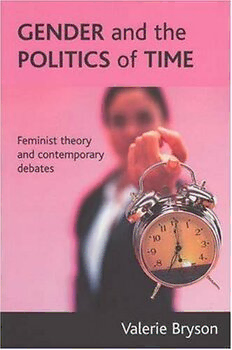
Gender and the politics of time: Feminist theory and contemporary debates PDF
229 Pages·2007·0.784 MB·English
Most books are stored in the elastic cloud where traffic is expensive. For this reason, we have a limit on daily download.
Preview Gender and the politics of time: Feminist theory and contemporary debates
Description:
Women's increased role in the labour market has combined with concerns about the damaging effects of long working hours to push time-related issues up the policy agenda in many Western nations. This wide-ranging and accessible book assesses policy alternatives in the light of feminist theory and factual evidence. The book introduces mainstream ideas on the nature and political significance of time and re-frames them from a feminist perspective. It uses feminist analyses of women's experience and use of time to provide a critical overview of policies in Western welfare states. Themes covered include the impact of 'time poverty' on women's citizenship; gender differences in time use and how these are rewarded; the social meanings of time and whether these differ between women and men; and the role of the past in framing policy options today. The book also explores: the significance of differences amongst women; the interconnected nature of public and private time; the value of time spent caring for others; the right to time for care; and, the uses and limitations of time-use studies. The book is essential reading for all those interested in gender inequality, time-use or work/rest-of-life balance. It will be an invaluable resource for students and academics throughout the social sciences.
See more
The list of books you might like
Most books are stored in the elastic cloud where traffic is expensive. For this reason, we have a limit on daily download.
